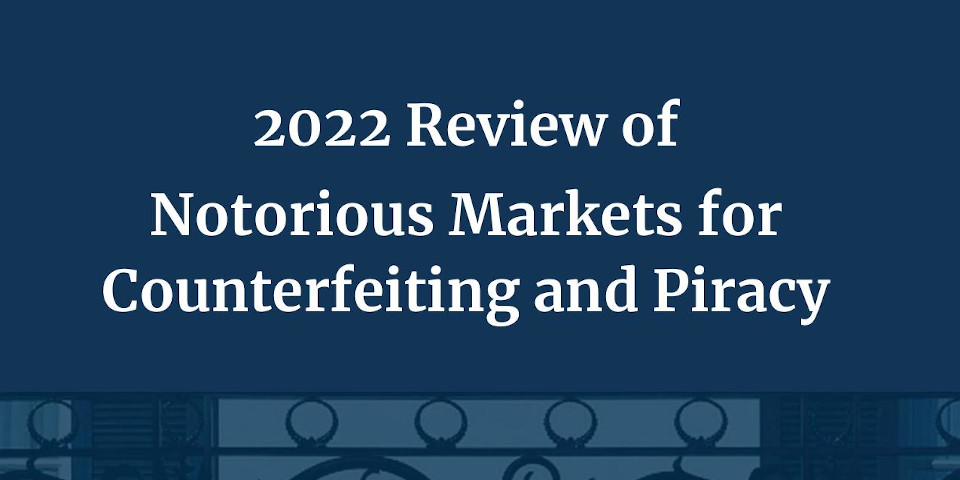United States Trade Representative’ Report Named Mangga Dua and Several Other E-Commerce In The 2022 List of Notorious Markets
Apr 10, 2023

Are you tired of purchasing what you think is a genuine luxury item only to find out later that it's a fake? You're not alone. The sale of counterfeit goods is a rampant problem worldwide, and it doesn't seem to be going away anytime soon.
On January 31st, 2022, the United States Trade Representative (“USTR”) released its 2022 Notorious Market list report, naming several online and physical marketplaces in Indonesia, Malaysia, China, the United Arab Emirates, Canada, and India for trading counterfeit goods. This list included Pasar Mangga Dua, a famous marketplace in Jakarta, known for its sale of counterfeit bags, wallets, clothes, and accessories.
While raids and warning letters have been issued to traders in these marketplaces, they continue to sell counterfeit products, making it challenging for intellectual property rights holders to combat this issue. And it's not just a problem in these countries; the sale of counterfeit goods is prevalent globally.
In the report, USTR stated that Pasar Mangga Dua to be a famous marketplace selling many counterfeit goods including bags, wallets, clothes, and other accessories. The owners of the relevant intellectual property rights have reportedly conducted raids in Pasar Mangga Dua, and its traders have been given warning letters. However, the results have been found to be less than satisfactory, as Mangga Dua remains in the Notorius Market list.
The Notorious Market List is a dedicated list created by the USTR for the purpose to motivate the government and private sector to reduce piracy and counterfeiting of intellectual property rights. The report has listed 39 online markets and 33 physical markets on the Notorious Market list. The companies on the list are accused of engaging in or facilitating and benefiting from the trade in counterfeit or pirated goods sold there.
In Malaysia, the Petaling Street Market, a very famous marketplace in Kuala Lumpur, sells a wide range of counterfeit goods such as shoes, watches, bags, wallets, glasses, and other consumer goods is listed in the List.
In China, some Ecommerces are included in the report, they are among others: Taobao, Aliexpress, Baidu Wangpan, and Pinduoduo. There's also the Beijing Silk Market, in Beijing which has been on the Notorious Market list since 2011. Silk Market remains one of the largest markets for counterfeit goods in Beijing. The vendors there often openly admit to sell counterfeit products. They also explained that there are sellers who offer to ship counterfeit goods overseas and they manage to avoid detection by customs authorities. Intellectual property rights holders report that although several raids have been conducted on markets, the measures have not succeeded in eradicating the circulation of counterfeit goods.
In the United Arab Emirates, the sale of counterfeit goods is rampant, especially in the district market, Deira, and Dubai. The Deira District is an area of several markets including Dubai Souk, Deira Old Souk, Dubai Gold Souk, Dubai Spice Souk, and Perfume Souk. The market is reportedly notorious among tourists and locals for selling goods violating intellectual property rights. Despite this, the Dubai Police and the Dubai Department of Economic Development often raids the sellers of infringing intellectual property rights products in the market. The authorities will usually fine sellers for intellectual property rights violations although it has never been successful to deter the selling of counterfeit products.
In India, the sale of counterfeit goods is usually prevalent in the heart of Mumbai where counterfeit watches, footwear, electronics, accessories, and cosmetics are sold. Intellectual property rights holders have warned consumers that counterfeit cosmetics sold in these markets pose health and safety risks.
In Canada, Counterfeit goods are also rampant in circulation especially with some report where counterfeit goods offered at Pacific Mall is rising. However, Pacific Mall management is not taking the necessary action and law enforcement is not prioritizing action against the counterfeit trade. In the Pacific Mall, counterfeit luxury goods, apparel, and electronics were reportedly displayed or hidden under tables or in back rooms. Some counterfeit high-end products were sold as genuine goods, with packaging and labels resembling genuine brands but at a lower price.
From the report, we could conclude that the sale of counterfeit good is a matter not only for Indonesia, but also for other countries as well. Through having a better understanding of the presence reality of the counterfeit good market, the country listed will have better awareness to improve its Intellectual Property protection, as well as protecting ourselves as a consumer from purchasing counterfeit good. (SU/JP-BCS-BDP)
